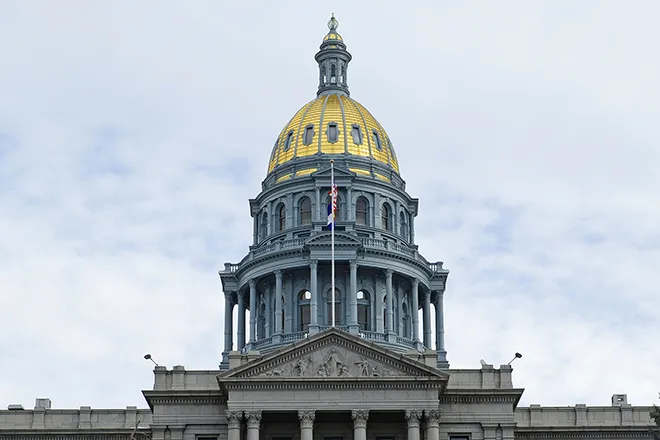
Daily Audio Newscast - March 20, 2024
News from around the nation.
Kentucky School districts say SNAP Cuts legislation could worsen student hunger; SCOTUS allows Texas to begin enforcing controversial immigration law; WMU secures $2.25 million grant for carbon capture research; Historic agreement to return Redwoods land to Yurok Tribe.
TRANSCRIPT
The Public News Service Daily Newscast, March the 20th, 2024.
I'm Mike Clifford.
Kentucky school districts say a proposed bill that would lighten restrictions on STAP participation will lead to an uptick in student hunger.
Tracy Pulley with Fulton Independent Schools says the changes would also impact funding for school breakfast, lunch and dinner programs, noting a majority of students in her district qualify for free school meals and take-home boxes.
She says over the past decade, the number of boxes distributed monthly to kids has jumped by 400 percent.
The parents here, they do work.
Many of our families, our parents have two jobs and they are still not able to buy enough food for their household to keep their children from being hungry.
House Bill 367 was stalled last week in a Senate committee, but the measure could still make its way through the legislature.
The bill's sponsor, Republican Rep.
Wade Williams of Arlington, argues the changes would help ensure that only people who are truly in need can use STAP benefits and would save the state money.
Nadia Ramligan reporting.
Under the proposed bill, more than 21,000 students would lose STAP benefits statewide.
Next from CNN, the Supreme Court Tuesday cleared the way for Texas to immediately begin enforcing a controversial immigration law that allows state officials to arrest and detain people they suspect of entering the country illegally.
The court's three liberal justices dissented.
CNN notes that the legal challenges to the law are ongoing at a federal appeals court, but the decision hands a significant yet temporary win to Texas, which has been battling Biden over immigration policy.
And Western Michigan University has gotten a significant funding boost with a grant of more than $2 million from the U.S. Department of Energy.
The grant is earmarked for research on carbon capture and storage technology, or CCS, as part of the CleanMI project.
This initiative brings together WMU students and faculty with other institutions to develop solutions for capturing CO2 emissions and safely storing them underground.
Mert Atul Han, an engineering professor at the university, says while keeping the study small scale, there are two paths for CO2.
You can just try to convert it to something else, which is pretty useful fuels.
Number two, you could just stabilize it, make sure it's not going to go back to the atmosphere and stay safe somewhere where we are going to store it.
The DOE has also chosen four carbon capture large-scale pilot projects located in power plants and industrial facilities in Kentucky, Mississippi, Texas and Wyoming.
They'll focus on point source carbon capture, utilization and storage.
The projects align with the Biden administration's target of a net zero economy by 2050.
Farah Siddiqui reporting.
This is public news service.
Now to Connecticut, where the state Senate will take up a bill that would address legacy admissions at its public and private colleges and universities.
SB203 initially called to end legacy admissions, but it has been modified to include a provision ending preference for children of donors to colleges and universities.
While schools are pushing back against the bill, public hearing testimony shows a majority want this practice ended, even former legacy students.
Amy Dowell with Education Reform Now CT describes one woman's testimony.
While she was afforded the opportunity to attend Yale and be admitted because of her legacy status, partially she recognizes that her children will have great opportunities as they apply and this should be a process built on merit and not on who you know and who your parents are.
In addition to this, studies show legacy admissions overwhelmingly benefit wealthy white students at schools like Harvard University.
Dowell says Connecticut can build on this bill by examining who colleges are recruiting, where they're going to recruit their students and who they're making an effort to admit and have apply.
The bill has been filed with the Legislative Commissioner's Office.
I'm Edwin J.Vieira.
And March is National Criminal Justice Month.
People with mental illness are overrepresented in jails and prisons.
The details now from Eric Tegedorf.
According to the Prison Policy Initiative, 43 percent of people in state prisons and 44 percent of people in local jails have been diagnosed with a mental health disorder.
However, placing folks behind bars may not be the best solution.
John Mitchell, a judge in Kootenai County's Mental Health Court, says about half of the people in his caseload have some sort of mental health diagnosis, but notes that jail does little to change their behavior.
Unless you can figure out a way to help those people address their mental health concerns, ideally at the same time they get their chemical dependency treatment, they're just going to keep coming back.
Mitchell says jail can be necessary for a person's safety or the public's safety, but that hasn't often been the case in his 22 years heading the Mental Health Court.
Finally out to the West Coast and our Suzanne Potter.
The Yurok tribe has signed an agreement this week to regain ownership of a former mill site in Oreck, California, which will be co-managed with the state and federal land managers and start welcoming visitors in 2026.
The place is called Oru in the Yurok language on Highway 101, about 40 miles north of Eureka at a former lumber mill site in Oreck.
Yurok tribal leader Joseph James says this is a model for the Land Back movement.
It will share our culture, our knowledge as indigenous people, first people, keepers of the land.
It's not driven by Western society providing interpretation.
It's being driven by Yuroks.
The nonprofit Save the Redwoods League bought the 125 acre property 13 years ago.
This is Mike Clifford for Public News Service, member and listener supported.
Hear us on Great Radio Stations, your favorite podcast platform. Our trust indicators at publicnewsservice.org.

















